August 11, 2023
Kismet Mokhtar
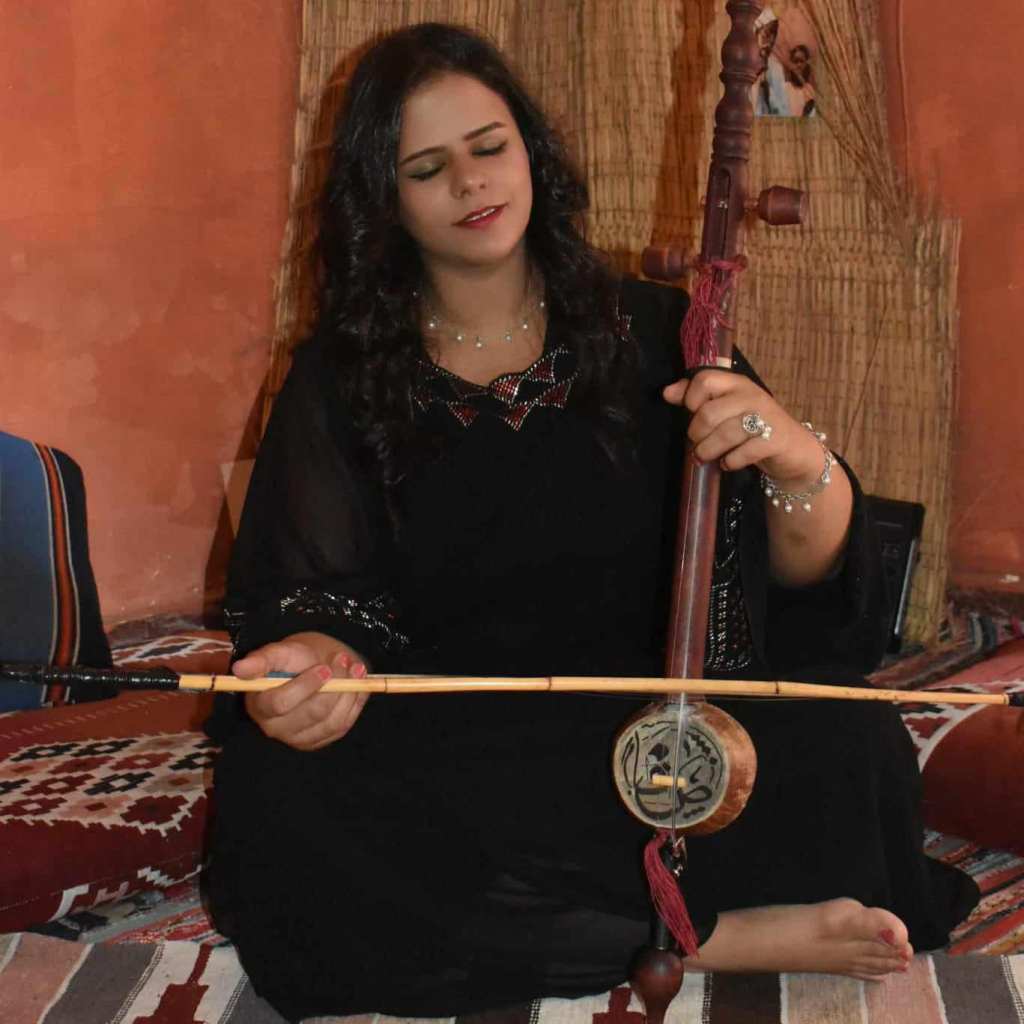
Photo via Safa El Helaly Facebook
“In the heart of Egypt’s rich cultural tapestry lies an instrument that has echoed through the ages, carrying with it tales of ancient traditions and profound emotions. The Rababa, a rustic yet soul-stirring musical instrument, has woven its melodies into the very fabric of Egyptian heritage.
From the small villages to the bustling cities, its resonating strings have accompanied stories of triumph and heartache, offering a window into a world where music is a vessel for expression.
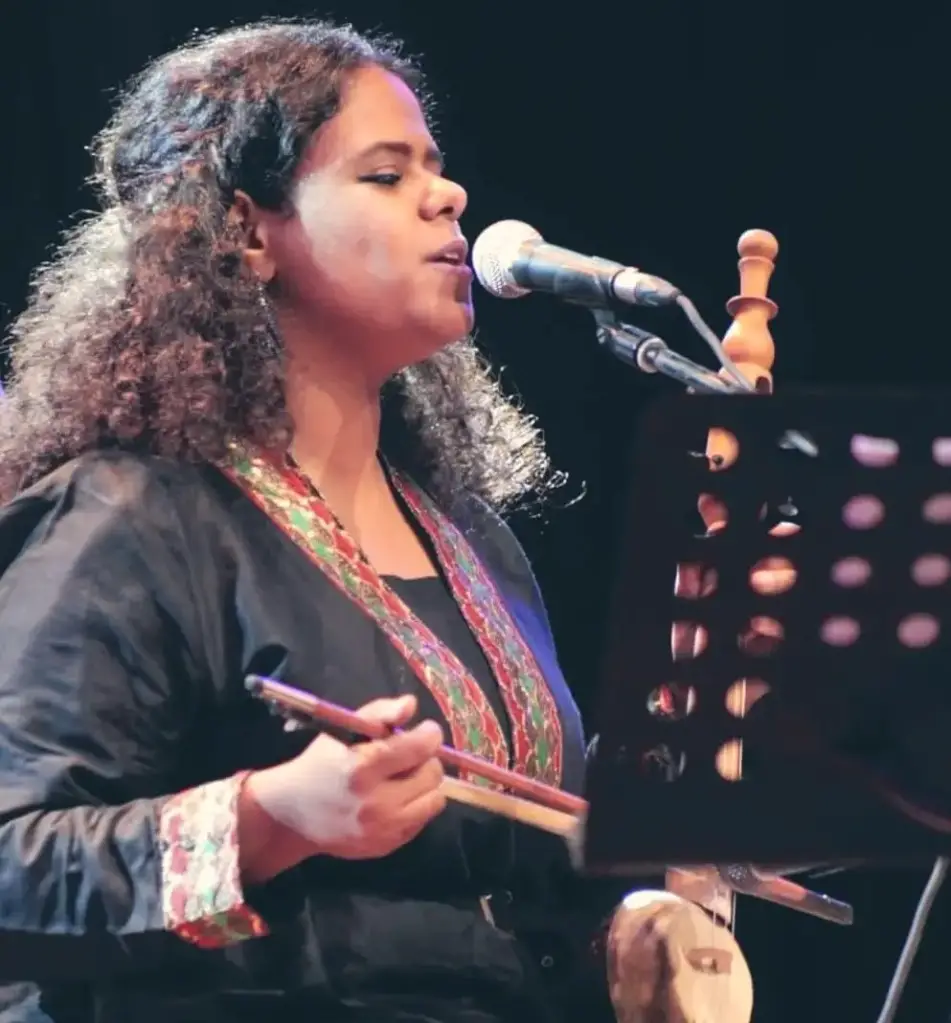
Safa El Helaly fell in love with the instrument, and became the first woman to play the Egyptian rababa, and perhaps among a few female pioneers who play this instrument in the world.
Born and raised in Sohag, Upper Egypt, Helaly learned to sing at a young age. “I used to attend a lot of weddings in Sohag, and l was mesmerized by the improvised songs they sang; as well as the folk songs of Upper Egypt. I loved it, Helaly said in an interview with Ahram Online.
Rababa, the traditional musical instrument in Egypt, is also popular in various cultures across the Middle East, North Africa, and Central Asia. It is probably the oldest string instrument, dating as far back as the 8th Century, when it was found in Arabia and Persia.
In Egypt, the Rababa has deep cultural significance. It serves as a symbol of Egypt’s musical heritage and is associated with rural and folk music, particularly in Upper Egypt.
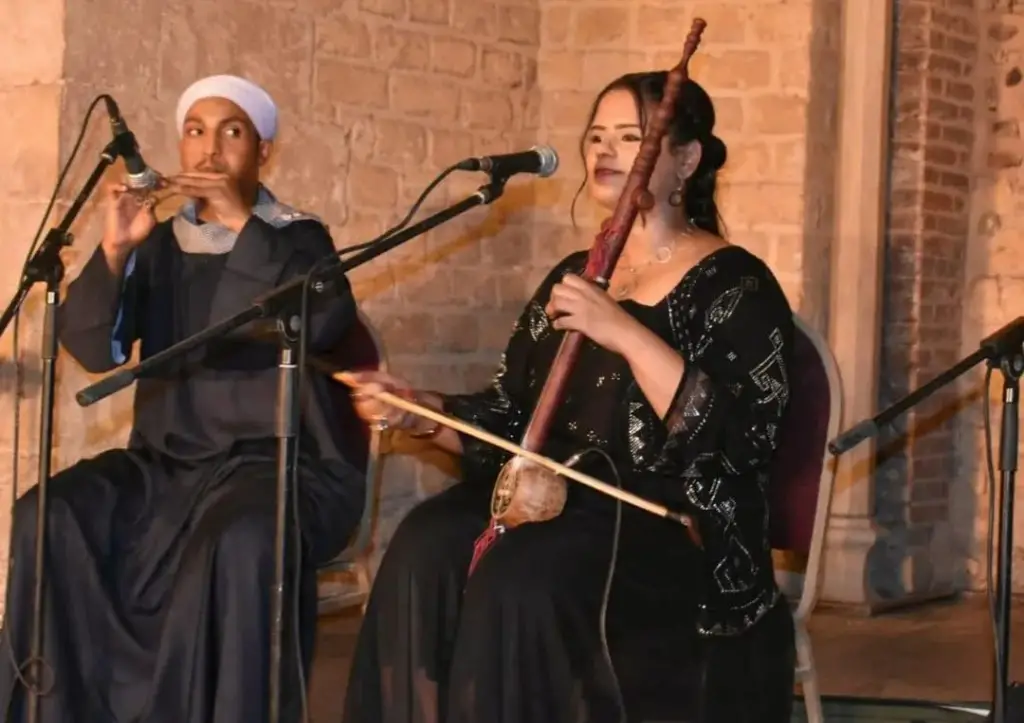
It has been used to accompany vocal performances and narrates various folk tales and stories, often in the form of sung ballads. The influence Rababa had on young Helaly was profound.
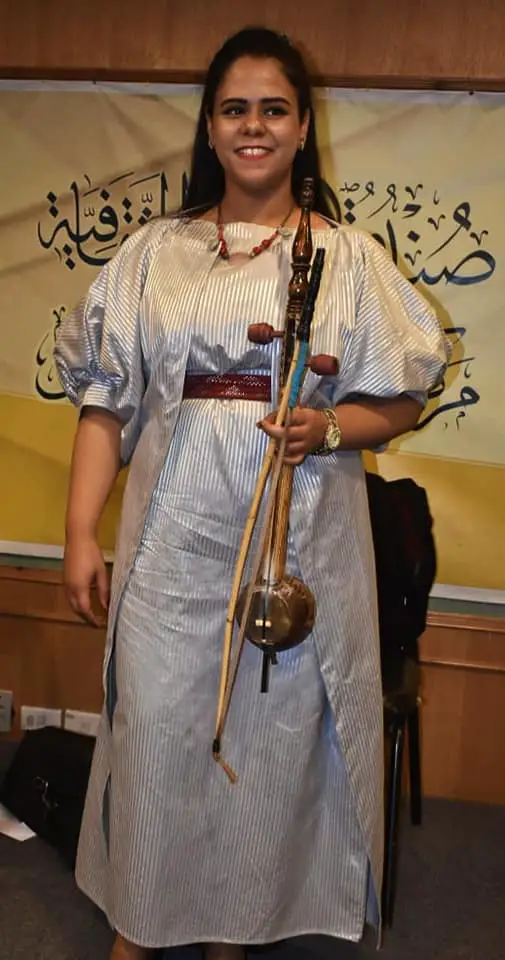
Helaly’s mother, who had a deep passion for music and folk songs herself, realized her daughter’s passion. She enrolled her daughter at the Cultural Palace of Sohag. Helaly was nine when she joined the folk troupe. She continued to sing with them until she left to Cairo to start college.
In Cairo, Helaly studied English language at the Factory of Specific Education. While in college, she joined El Warsha and The Nile Heritage music bands. These bands had several Rababa players, and Helaly’s fascination with the instrument continued.
“I watch them as they played and l wanted to play Rababa so much. I observed how they played to learn from them.” Helaly said.
Like many traditional musical instruments, Rababa was an instrument primarily played by and associated with men. The limited participation of women in playing the Rababa can be attributed to a combination of cultural, social, and historical factors; where music bands in these communities were entirely men.
And as learning to play these traditional instruments was passed from one generation to the other, women lacked the opportunities to learn and play the Rababa.
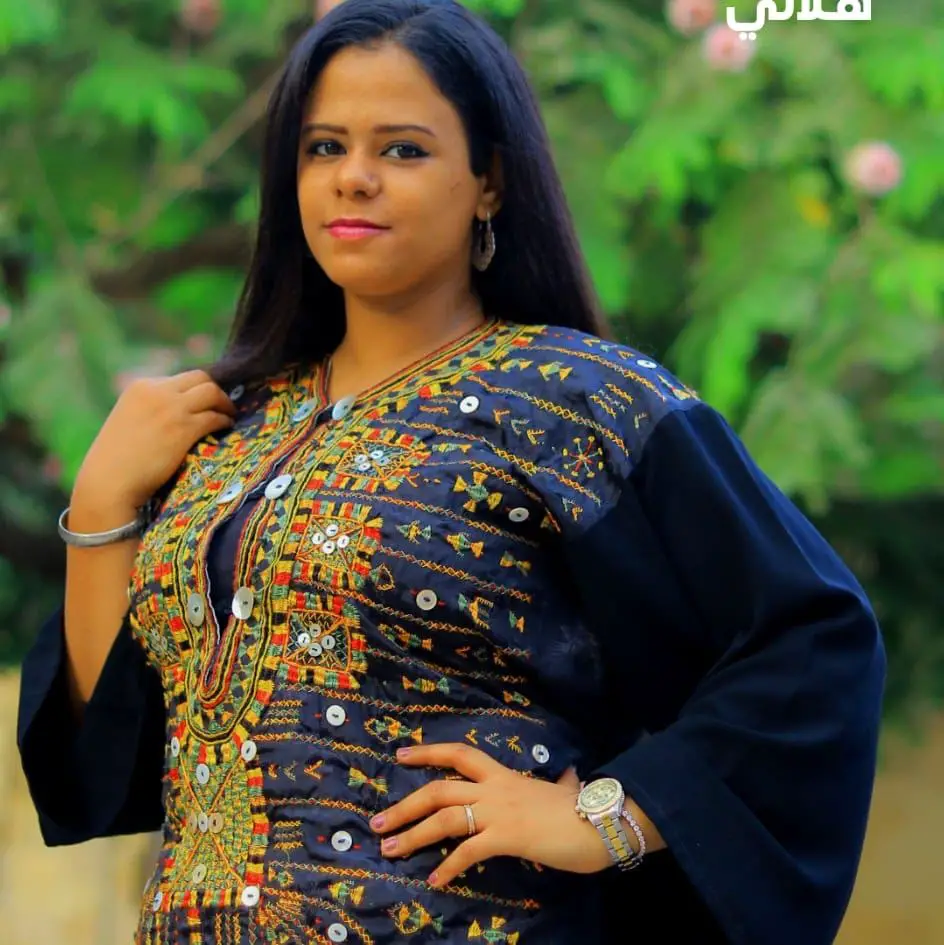
Helaly decided to breakdown these traditional barriers. “This instrument in particular is the closest to my heart. I like to sing to its tunes. I don’t know how to sing without it tunes. So, l started to look for someone to teach me how to play it.”
Helaly found the Rababa maker and player, Hussein Darwich, who introduced her to the instrument and taught her how to play it.
To enhance her musical skills and knowledge, Helaly joined the Higher Institute of Arabic Music. There, she learned to play the Oud.
In 2020, Helaly formed her own folk music band, where is sings and plays Rababa. “No woman has played Rababa before. Some people found it weird when they saw me play for the first time, but the majority enjoyed my performance and asked me to keep playing.”
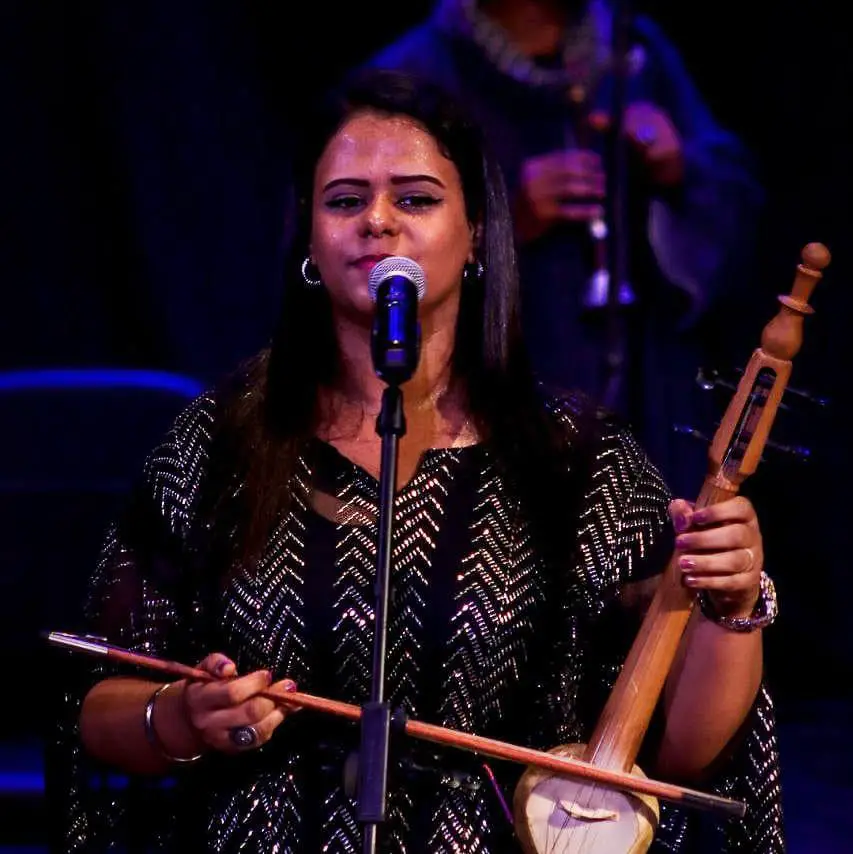
Helaly aspires to document the folk oral Rababa songs to preserve them for future generations. In addition, she dreams to open a school to teach children folk and traditional music, specifically from Upper Egypt. By playing modern music with the Rababa, Helaly believes she can reach the younger generation who may be losing interest in the traditional folk music. She has tried it herself and was able to play modern music with Rababa, but she’s not too fond of that. “Rababa is best when you play traditional songs. You feel more the beauty of its melodies,” she concludes.
You can listen to her music here
***If you liked this article, don’t forget to subscribe to our newsletter and receive our articles by email
